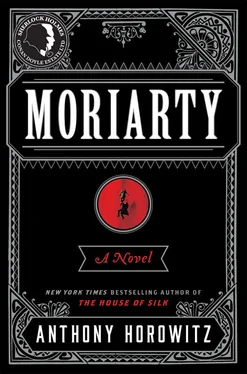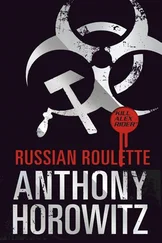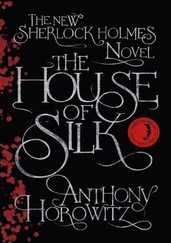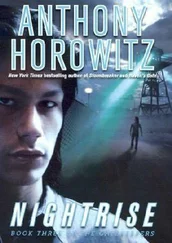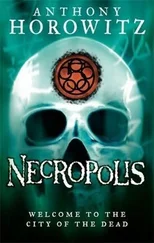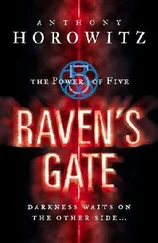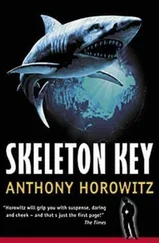‘I must ask you, Inspector Jones, quite what you had in mind when you came here a few days ago, masquerading under a false name and carrying an invitation which you had purloined. Were you unaware of the seriousness of your conduct?’
‘It has been made very clear to me and I can only extend my apologies to you and to the envoy. Let me say, though, that the situation was a desperate one. I was in pursuit of a dangerous gang of criminals. There had been much bloodshed. They attempted to kill me… an explosion that claimed more than one life.’
‘How can you be sure that they were responsible?’ Lincoln asked.
‘I cannot, sir. All I can say is that Chase and I pursued them to this address. A brougham driver brought them here directly from Scotland Yard immediately following the outrage.’
‘He could have been mistaken.’
‘It is possible, but I do not believe it. Mr Guthrie seemed quite certain of himself. Otherwise, I would not have entered in the manner that I did.’
‘That was my suggestion,’ I said. I was not feeling well and knew that I presented a disagreeable sight. The ill treatment that I had received at the hands of Mortlake’s thugs had been more serious than I had thought: the whole side of my face was swollen, my eye blackened, my lip cracked so that I spoke with difficulty. Jones looked little better. Smartly presented though we both were, I was aware that we must resemble the victims of a train wreck. ‘I was responsible,’ I continued. ‘I persuaded Inspector Jones to come.’
‘We are well aware of the methods of the Pinkerton Agency,’ Isham muttered. He had been unsympathetic from the start. ‘Inciting riots. Attempting to incriminate hard-working men because they had chosen, quite legitimately, to go on strike—’
‘As far as I am aware, we have been guilty of none of those things. Certainly, I was not involved in the Chicago railway strikes or any others.’
‘That’s not in question now, Charlie,’ Lincoln said, quietly.
‘We acted unlawfully,’ Jones continued. ‘I admit it. But as things turned out, we were… I will not say justified, but at least we were proven right. The criminal known as Clarence Devereux was indeed seeking refuge within these walls, using the assumed name of Coleman De Vriess. Or perhaps that is his real name and Devereux is his alias. Either way, we discovered him here. And that was what led him to strike back at us in a way that was unparalleled in all my years as an officer of the law.’
‘He kidnapped your daughter.’
‘Yes, Minister,’ Jones said, addressing the envoy formally. ‘His men took my six-year-old child and used her as bait to capture Chase and myself.’
‘I have two daughters,’ Lincoln muttered. ‘And only recently I lost a son to sickness. I understand your anguish.’
‘Last night, in the catacombs beneath Smithfield meat market, Clarence Devereux threatened us with torture and death. We are only here thanks to a miraculous escape, which we are still hard-pressed to explain. Well, that is for another time. But right now, sir, I can swear that the man who assaulted us and who is responsible for a catalogue of crimes in both your country and mine is the same man whom you call your third secretary. I am here to request—even to demand—that we be allowed to question him and, in due course, bring him to face justice in a court of law.’
There was a lengthy silence after this. Everyone was waiting for Lincoln to speak but instead he nodded at his councillor who stroked his beard pensively and then addressed us thus: ‘I regret that it is not quite as simple and as straightforward as you would like, Inspector Jones. Let us set aside, for a moment, your personal testimony and whether or not it is to be believed.’
‘Wait!’ I began, already outraged by the position he had chosen to take. But Jones raised a hand, cautioning me to stay silent.
‘I am not saying that I doubt your word even though I will admit that your methods, your intrusion here, leave much to be desired. I can also see for myself the injuries sustained by you and by your associate, Mr Chase. No. What is of the essence here is the principal of extraterritoriality. An envoy is the representative of those who sent him and almost a century ago, Thomas McKean, the Chief Justice of Pennsylvania, set down that the person of the public minister serving abroad is both sacred and inviolable and that to suggest otherwise would be a direct attack on the sanctity of the nation state. I must add that this protection extends to all who serve under the envoy. How could it be otherwise? To deny his servants the same privilege of diplomatic immunity would cause all manner of difficulties and would eventually undermine the independence of the envoy himself.’
‘Forgive me, sir. But surely the envoy has the right to waive that immunity if he deems it appropriate?’
‘That has never been the practice of the United States. Our view is that the legation remains outside the civil law of the country in which it finds itself. It is, you might say, an island. I am afraid that these premises are protected from criminal process. Mr De Vriess, like Mr Isham and myself, can refuse to testify in both civil and criminal proceedings. Indeed, even were he to choose otherwise, he would still require authorisation from the envoy himself.’
‘You are saying, then, that we cannot prosecute him?’
‘That is exactly what I am saying.’
‘But you would surely agree that natural law, basic humanity, demands that all crimes must be punished.’
‘You have given us no evidence,’ Isham cut in. ‘Mr Chase has been injured. You have been forced to endure the temporary loss of your daughter. But nothing that you say fits the character of Mr De Vriess as we know him.’
‘And what if I am telling the truth? What if I tell you that, unbeknownst to you, Coleman De Vriess has taken advantage of the system that you describe? Will you gentlemen sit here and protect a man who has come to London only to inflict terror on its population?’
‘It is not we who protect him!’
‘But still he is protected. His associate, Edgar Mortlake, was sipping cocktails within these very walls. With my own eyes I saw Mortlake cut the throat of a man who had crossed him. It was he who took my girl, and his brother, Leland, the cold-blooded partner in his schemes, was responsible for the murder of the Pinkerton agent, Jonathan Pilgrim. Would you stand up for them if they were still alive? When my friend Chase came to England, he brought with him files that were filled with the vile activities of this gang, carried out all over America. I have seen them. I can show them to you. Murders, thefts, blackmail, extortion… Clarence Devereux was the chief architect of all this misery, the same Clarence Devereux who only last night threatened to torture us to death, like cattle. I know that you are honourable men; I refuse to believe that you will stand in the way of due process and continue to live with this viper among you.’
‘The evidence!’ Isham insisted. ‘It is all very well for you to speak of process. I myself have studied the law. Probatio vincit praesumptionem . There! What do you say to that?’
‘You speak in Latin, sir. I speak of a daughter stolen from my arms.’
‘If we cannot prosecute him, can we at least not question him?’ I asked. ‘Surely we have the right to interview him, inside Scotland Yard and with any counsel that you wish to provide. We will prove to you the truth of our allegations and then, if we cannot prosecute him here, at least we can see him sent home to face justice in America. Inspector Jones is right. He should be anathema to you. Do you really doubt us? You see the injuries we have both suffered. From where do you think they came?’
Читать дальше
